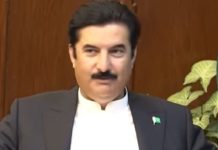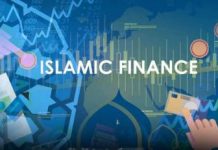Umm-e-Aimen
Wikileaks is an independent, non-profit organization that publishes classified information and news leaks from anonymous sources to the public domain. The organization was founded in 2006 by Julian Assange, an Australian computer programmer and activist. In 2010, WikiLeaks released a cache of confidential U.S. documents on the internet, which included military logs of Iraq and Afghanistan wars and diplomatic cables between the U.S. and other nations. This action propelled WikiLeaks to global recognition. This paper will discuss Wikileaks, its founding, operations, and achievements.
Julian Assange established Wikileaks in 2006 as an online platform for whistleblowers to anonymously submit classified material to the organization. The primary objective of the organization is to publish material that is in the public interest, with a particular focus on governments, corporations, and other powerful entities.Wikileaks operates servers in various countries and utilizes advanced encryption techniques to safeguard the anonymity of its sources. Whistleblowers can submit confidential information to the organization through an electronic submission system, which encrypts the data and protects the source’s identity. The core activities of Wikileaks involve receiving, decrypting, and publishing classified information. The organization maintains a team of journalists, volunteers, and technological experts who collaborate to ensure the accuracy and authenticity of the information before its release. Redaction techniques are employed to protect sensitive information that may pose harm to individuals, the military, or national security. The functioning of Wikileaks is based on principles of openness, transparency, and accountability. Once information is received, it undergoes review, verification, and subsequent release for public consumption. Wikileaks has a strict policy of never revealing the identity of its sources, which has shielded the organization from legal action and backlash from political and other entities.
Since its inception, Wikileaks has achieved several significant milestones. Notably, the release of classified information, including military logs and diplomatic cables pertaining to the U.S. military’s operations in Iraq and Afghanistan, had a profound global impact. This critical information altered the narrative surrounding the wars and the U.S.’s involvement in them. The disclosure of these documents resulted in the arrest and prosecution of U.S. soldier Chelsea Manning, who faced charges such as theft and espionage. The leaks also prompted the withdrawal of U.S. troops from Iraq and heightened public scrutiny of U.S. foreign policy. Another notable achievement of Wikileaks was the exposure of classified information concerning various governments and corporations worldwide, ranging from China, Russia, and Iran to the United States, Britain, and France. The leaked files encompassed instances of financial corruption, human rights violations, political scandals, war crimes, and atrocities. The release of such information promotes transparency and accountability, contributing to a more informed and democratic society. Wikileaks has gained international recognition as a vital tool for freedom of speech and one of the most significant sources of information in the digital age.
Wikileaks has exerted significant influence on various facets of society, including politics, media, diplomacy, and the military. Some notable impacts include:Exposing unscrupulous aspects of political leaders and administrations, leading to increased mistrust and disillusionment with governments. For instance, the release of diplomatic cables unveiled the U.S.’s surveillance of world leaders, eliciting international outrage and condemnation.nfluencing election campaigns, particularly concerning issues of corruption and unethical behavior by politicians. Experts argue that Wikileaks’ involvement may have influenced the 2016 US presidential election through Russian interference.
The leaked documents provide opportunities for the media to uncover hidden truths about governments and powerful entities. However, the ethical and editorial decisions surrounding Wikileaks’ releases have sparked controversy. The organization’s collaboration with journalists post the 2010 cable release resulted in the US government searching their devices and emails, raising concerns about journalistic freedom. The publication of classified documents has undermined efforts to build and strengthen relationships between governments, necessitating greater caution and carefulness in diplomatic dialogue. These disclosures also dealt a severe blow to the military’s reputation and mission. The military has faced controversy regarding its treatment of whistleblowers, exemplified by Chelsea Manning’s conviction.Wikileaks’ work allows citizens to stay informed about their governments’ activities and hold leaders accountable for their actions. Public scrutiny fosters democratic discourse and policymaking, fundamental elements of a functioning democracy.
This protection ensures that those with information of public interest can disclose it without being silenced or victimized by those with greater power. These discussions often lead to societal and institutional reforms, as public outcry can pressure governments and corporations to rectify unethical practices and prevent future transgressions.However, it is important to acknowledge that Wikileaks also faces certain threats and criticisms. Compromising national security and endangering lives through the release of classified information related to military operations and diplomatic negotiations.
There are ethical questions regarding privacy, governance norms and editorial standard. The organization’s use of anonymous sources and encryption methods raises concerns about the vetting process and the determination of whether releasing information is in the public interest.Legal challenges from governments and corporations which classified information have been published by Wikileaks, which can pose a significant threat to the organization’s sustainability.
Wikileaks has had a substantial impact on global politics, media, diplomacy, and the military. It has exposed hidden truths, fueled public debate, and fostered transparency and accountability. However, it also faces threats and ethical challenges that raise important questions about privacy, national security, and the balance between freedom of speech and responsible information dissemination.At the end, I thank to Respected Sir Dr. Muhammad Akram Zaheer who has shown in my growth as a writer. His belief in my abilities and their dedication to helping me succeed has been an invaluable source of motivation. His mentorship has empowered me to explore new perspectives, challenge my own assumptions, and develop a stronger and more confident voice.
Umm-e-Aimen
BS Public Administration












